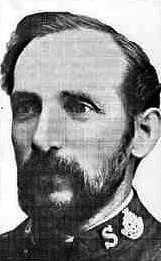Jesus came down my ransom to be –
Oh, it was wonderful love!
For out of the Father’s heart he came
To die for me on a cross of shame,
And from sin’s bondage to reclaim;
Oh, it was wonderful love!
CHORUS:
Wonderful, wonderful, wonderful love,
Coming to me from Heaven above;
Filling me, thrilling me, through and through;
Oh, it was wonderful love!
Clear to faith’s vision the cross reveals
Beautiful actions of love,
And all that by grace e’en I may be
When saved, to serve Him eternally.
He came, He died for you and me –
Oh, it was wonderful love!
His death’s a claim, His love has a plea:
Oh, it is wonderful love!
Ungrateful was I to slight Thy call,
But Lord, now I come, before Thee fall;
I give myself, I give up all –
All for Thy wonderful love.
Some of us have sung this song many times, being grateful for Christ’s love, yet perhaps not thinking much about the challenge or plea presented by such love – the need for change in our lives and the request that we give up our own will to follow His. As we approach Easter, let’s consider these aspects of the sacrifice we are remembering.
let's consider these aspects of the sacrifice we are remembering. Share on X Writer Emmanuel Rolfe lived from 1853 to 1914. Was he at some point aware that the world was about to plunge into severe warfare? Rolfe had been a farm worker before hearing William Booth preach, being converted to Christ, and joining The Christian Mission (the first name given to The Salvation Army ). He became a Salvation Army officer in 1879 and served in several corps appointments in Britain before going to work in Australia and New Zealand. He then returned to Britain for a time, and next was sent in charge of the Army’s work in Jamaica. His final appointments were at International Headquarters in the Staff Department and the Foreign Office.
Writer Emmanuel Rolfe lived from 1853 to 1914. Was he at some point aware that the world was about to plunge into severe warfare? Rolfe had been a farm worker before hearing William Booth preach, being converted to Christ, and joining The Christian Mission (the first name given to The Salvation Army ). He became a Salvation Army officer in 1879 and served in several corps appointments in Britain before going to work in Australia and New Zealand. He then returned to Britain for a time, and next was sent in charge of the Army’s work in Jamaica. His final appointments were at International Headquarters in the Staff Department and the Foreign Office.
WORDS: EMMANUEL ROLFE; MUSIC: THOMAS BAINBRIDGE
S.A. SONG BOOK, 1987 EDITION, #114; 2015 EDITION, #175
REFERENCE: USAWEST.ORG






